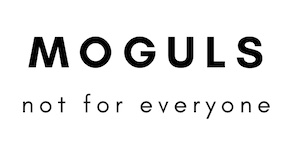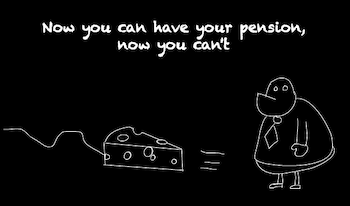Note from July 2024: Things have changed. The ‘turnover allowance’ detailed below has been replaced with a fixed reporting level for total traded chargeable assets of £50,000 – if you’re registered for self-assessment– or if your total gains exceed your capital gains allowance. Hold your investments inside ISAs and SIPPs and you don’t have to report anything! I’m preserving the post below for posterity.
Most people rightly believe capital gains tax (CGT) is not a tax they’ll pay.
Buy-to-let landlords may face a CGT bill when they sell up, due to the size their one-off property gains.
But private investors in shares and funds can usually buy and sell within tax shelters – ISAs and SIPPS 1. This avoids CGT altogether.
By using shelters you also sidestep the hassle of reporting to HMRC all your trades and profits.
The ability of ISAs and pensions to swallow your cash contributions like Pac-Man coming off a crash diet means even the mildly wealthy need not pay CGT.
Okay, so you may have too much money to shovel it all into tax shelters in a particular year. An individual’s pension and ISA combined can take as much as £60,000 annually though 2, so even for moderately high earners, this usually only happens with an inheritance, a bonus, or when a bank heist pays off.
Once your allowances are used up, you may decide to invest in shares and other assets in unsheltered accounts. Cash in the bank is paying diddly, after all.
Fret not!
Paying CGT on future gains is still far from inevitable.
Gimme unshelter
For one thing you can offset some capital gains with losses. (And if you never have any of those then you’ve little to glean from us!)
There also exists a fairly generous annual CGT allowance. As I write it’s £12,300 in total realised capital gains in a year. 3
If you have unsheltered shares, funds, or other taxable assets and they go up in value, you can exploit your CGT allowance to defuse your gains over one or more years by reducing your holding piecemeal.
It’s a faff and when markets rise quickly you can be left with a lot of defusing to do. Let’s file that in the Nice Problem To Have folder. 4
Always use tax shelters to the fullest extent possible – even if you believe you’ll never exceed your annual CGT allowance – because, well, you never know.
I have an unsheltered holding that has gone up ten-fold in barely five years. At the current pace it’s going to take me until my sixties to defuse it. 5
The CGT allowance could be reduced or scrapped, at some point. We shouldn’t take it for granted.
For now though, CGT is an optional tax for most people, at least with some forward thinking.
Sympathy for the Devil
All that preamble is a reminder as to how CGT works – a gentle reassurance.
Because like those teens in a horror movie who arrive at an abandoned campsite with beers, bikinis, and a fatal disdain for the ravings of a madman who warned them not to sleep overnight at Lake Morte…
…there’s a trap!
As pitfalls go, it’s very minor. Nobody will lose a limb. Possibly not even any money, depending on how penalty-happy HMRC is.
But it’s still something to be aware of.
Here the crucial section from the official guidance:
You do not have to pay tax if your total taxable gains are under your Capital Gains Tax allowance.
You still need to report your gains in your tax return if both of the following apply:
- the total amount you sold the assets for was more than 4 times your allowance
- you’re registered for Self Assessment
The trap, you see, is a reporting issue, rather than an issue of taxes you’re mistakenly evading.
Harlem shuffle
At the time of writing the CGT allowance is £12,300.
This means that if you sell ‘chargeable’ assets that in total are worth more than four times the allowance – £49,200 – in a year, then you should report all your taxable gains that year to HMRC.
That is assuming you’re registered for self-assessment tax returns, which I’m confident most people who find themselves in such a position will be.
The first thing to note is that you don’t have to have breached your CGT allowance for the sale(/s) to be reportable.
If you sold an unsheltered shareholding you bought for £50,000 for £50,001 – a mere £1 gain – then you should report the trade to HMRC on the relevant supplemental pages of your tax return, because you’ve disposed of more than £49,200 worth of chargeable assets.
Even more slippery, it’s the ‘total amount’ that matters.
Let’s say you only have £5,000 in your non-ISA dealing account. You use that money to day trade, because you’re a silly billy.
You’d only have to turnover your portfolio every ten weeks or so – in terms of total sales – to again breach that total disposal limit of four times the allowance in a year.
Turning over a portfolio like that is quite easily done if you trade a lot – and especially if you’ve more than my illustrative £5,000 in play. 6
A platform like Freetrade 7 with its zero commission makes manic trading much more practicable than in the old days, with only stamp duty and spreads still payable on each trade.
So you can easily see how a trigger-happy trader could get to the point of having to show their workings to HMRC on a tax return.
Wild horses
In my experience very few people know about the four times reporting clause.
Indeed I once spoke to a very senior figure in a Fintech firm that was moving into share dealing who had no idea it even existed! (I was querying him about his plans for helping clients with any tax reporting, which is often still poorly done by platforms.)
What would happen to you if you breached the limit and didn’t report the relevant disposals to HMRC?
I’ve no idea. I’m not a tax expert or an accountant.
I can’t recall hearing about anyone getting into trouble. If you know differently, please comment below.
However a good rule to live by is Don’t Piss Off The Taxman. Personally I live by the letter of the tax law. I need my beauty sleep.
Easily the best course of action is to do your investing within ISAs and SIPPs. The paperwork and record-trawling required to report a string of trades for CGT purposes is tedious in the extreme.
It could be even worse if you haven’t kept your own records. You might discover your broker has deleted the old details of your trades. (I’ve seen this happen after platform mergers.) Without your own records you’ve yet another problem to deal with.
If you have sizeable sums that need investing outside of tax shelters, then the reporting rule is another (minor) thing to keep in mind when you decide how and what to buy, and when to sell.
- Self-invested personal pensions.[↩]
- Simplifying in the case of pensions, where for example limits are determined by your earnings and prior contributions.[↩]
- In the UK, ‘gains’ means you actually sold the asset for a profit – as opposed to simply owning something that is showing a paper profit.[↩]
- One snag with this strategy is if you become a forced seller – perhaps because a company you own is taken over and your shares are bought for cash. This can crystalize a CGT liability that you had planned to defuse over several years. Annoying![↩]
- Again, the Nice Problem To Have folder tends to fill up quickly when you’re making capital gains.[↩]
- Cover your ears, but my *sheltered* portfolio turnover is approaching 400% this year! Remember, unlike my co-blogger The Accumulator, I’m a crazed active investor. I don’t recommend it for most.[↩]
- Affiliate link.[↩]




